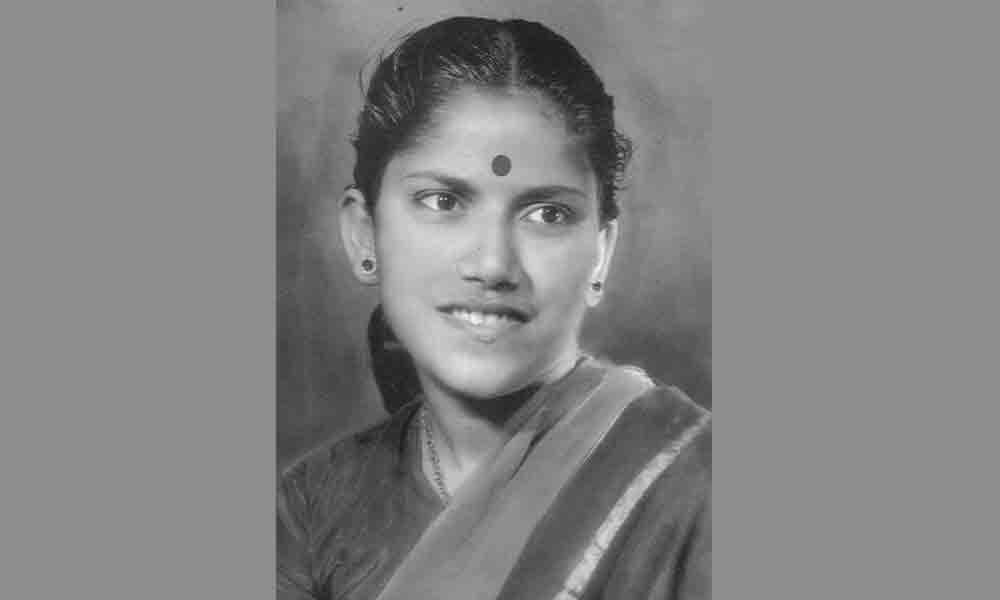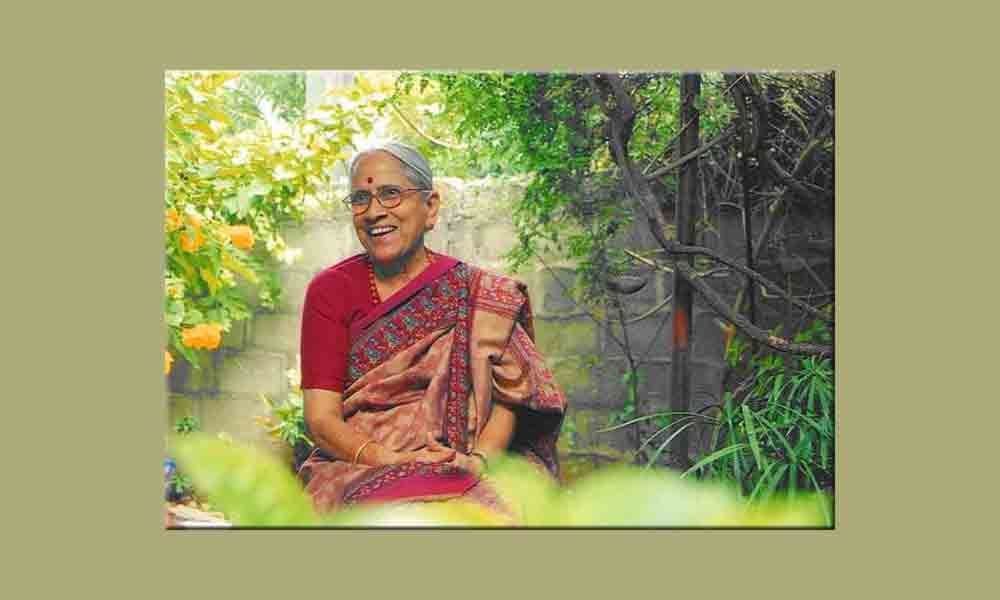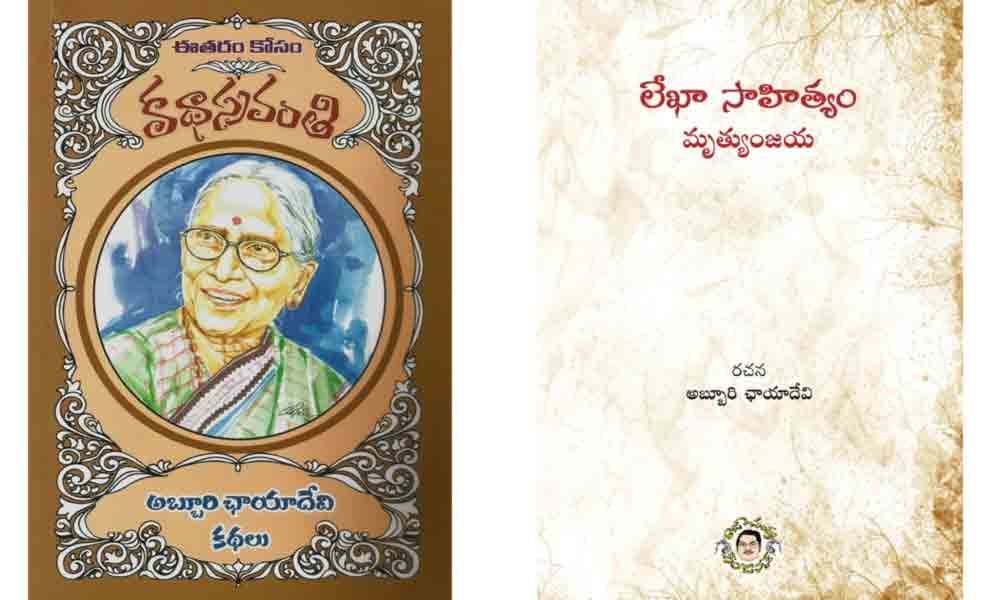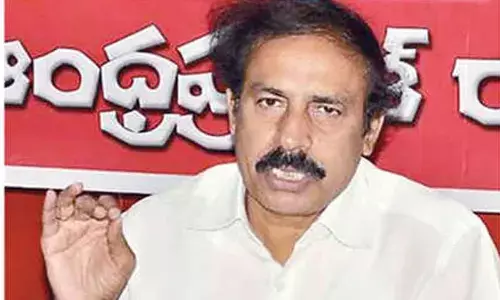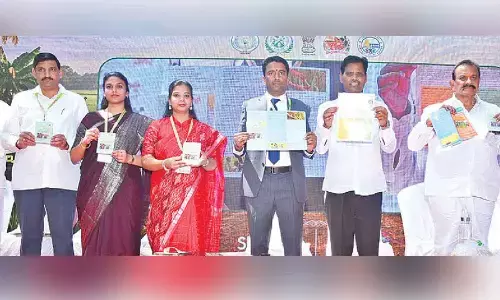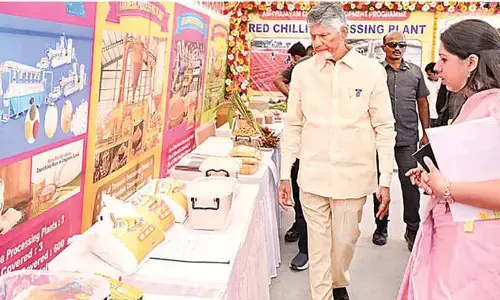End of an era!
Renowned Telugu story writer and recipient of the Sahitya Akademi award Abburi Chaya Devi recently passed away leaving behind an indelible mark in Telugu literature…
Soft-spoken but firm, delicate yet filled with an innate power to face life's vicissitudes, Abburi Chaya Devi was a writer, who defied circumstances to carve her own path in the Telugu literary firmament creating a 'silent revolution' in keeping with her external demeanour. Not surprisingly the writer whose short stories and essays reflected the turmoil faced by women in an unequal patriarchal society, stood up for her ilk winning the Central Sahitya Akademi award in 2005 for her pathbreaking work titled 'Tana Margam' (Her way). Most of her stories emerged from her own life experiences and the attitudes that dominated her childhood in a conservative Brahmin household where a male child was the 'centre of existence' and different rules were followed for men and women. The writer once recalled how her father performed several prayers that included 'Suryanamaskarams' for a male child and named her Chaya Devi (after Surya's wife) on begetting a female child.
'Sparsha' (touch) was a story that reflected an incident that occurred when she visited her father who had become blind in the last stages of his life. It delved into her journey with her father who was clearly the sole authority in the family outlining his unconcealed joy at the birth of his son and the trauma he experienced at his untimely death as also her own inability to stand by him. "The wide chasm between a father and daughter preventing a close bond which has its roots in extreme discipline and discrimination between male and female offspring is the crux of this narrative," she was to say of this story.
'Mrutyunjaya' was a book that was experimental in nature based on the letters written by her father and her replies, which were a commentary on social, political and philosophical issues that impacted society. Beginning with her first story 'Anubandham' written in 1952 under the name Maddali Chaya Devi, the author had come up with several works like 'Srimathi Udyogini', 'Prayanam', 'Sukhantam', 'Bonsai Bathukulu' and others which uncover fascinating facets of the female mind and issues that are close to their heart. As a feminist writer with a rare understanding, her writing is imbued with depth, sensitivity and empathy towards her subjects. They are a product of her heart's longing as well as that of other women.
Her short story 'Prayanam' published in 1965 was a poignant tale where the changes in the heroine's personal life are reflected in the course of her train journeys. Her experience on the way not only changed her as an individual but helped her realise the wisdom of the man chosen for her in contrast to the man she chose as a life partner. Through this story, the author also set to rest notions that feminist writing is mostly about male bashing. The profound views expressed by her characters, their realistic portrayal, the outpouring of emotions and the paradoxes presented by circumstances are part of her body of work that remains enduring through time. "When the awareness about inequality based on gender creeps in, women can no longer remain submissive beings whose freedom can be trampled upon. Despite emotional upheavals they strive to retain their identity and change the mindset of men," the author opined looking at life through 'feminine eyes' as she liked to say.
Chaya Devi's writing became more intense and focused after her marriage as both her husband Varadarajeswara Rao and father-in-law Abburi Ramakrishna Rao were literary giants. Her stint as deputy librarian at Delhi's Jawaharlal Nehru University in the sixties also contributed to her interest in varied literary and academic works that added a world view. This continued even after she resigned and returned to Hyderabad in the early eighties. As a member of the Central Sahitya Akademi, she did her bit for the promotion of good literature that was on par with other language writers who had earned national repute.
Although her last years were spent in an old age home at Kondapur, her own home at Bagh Lingampally with its flower-laden garden, bookshelves spilling over with books, little kittens that were her pets, lovely wall paintings and a variety of colourful dolls that she used to make herself, reflected her artistic inclinations and interest in all things bright and beautiful. A spiritual bent of mind came to her through the influence of renowned teacher-philosopher Jiddu Krishnamurthi whose work 'Commentaries of living' was translated by her into Telugu. Many of the writer's own works have been translated into different Indian languages reaching out to readers across the country. The dignified manner in which Abburi Chaya Devi, who was childless and lived alone for a major portion, traversed the journey of life have won her much admiration. As one who believed that a spiritual outlook had to be cultivated from a young age for better human relations, she truly charted her 'own way' in literature as in life.


